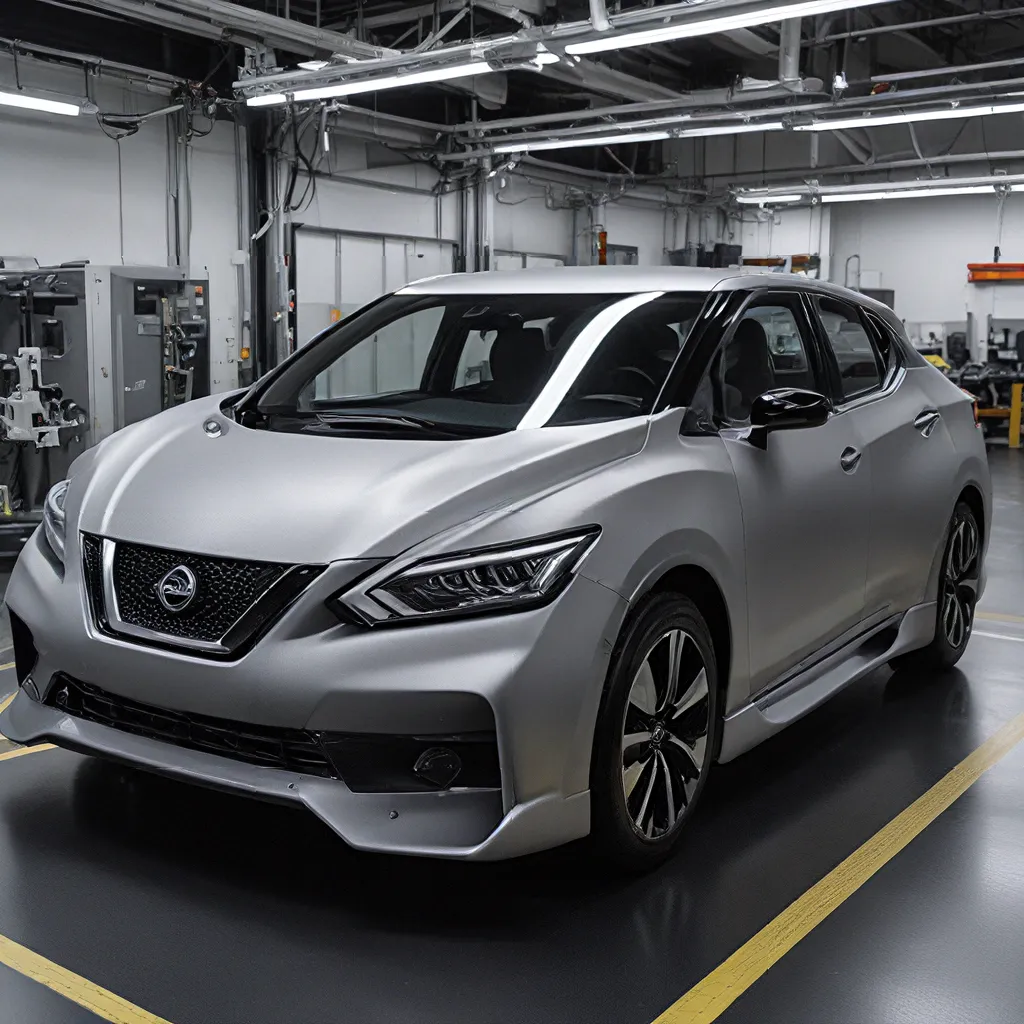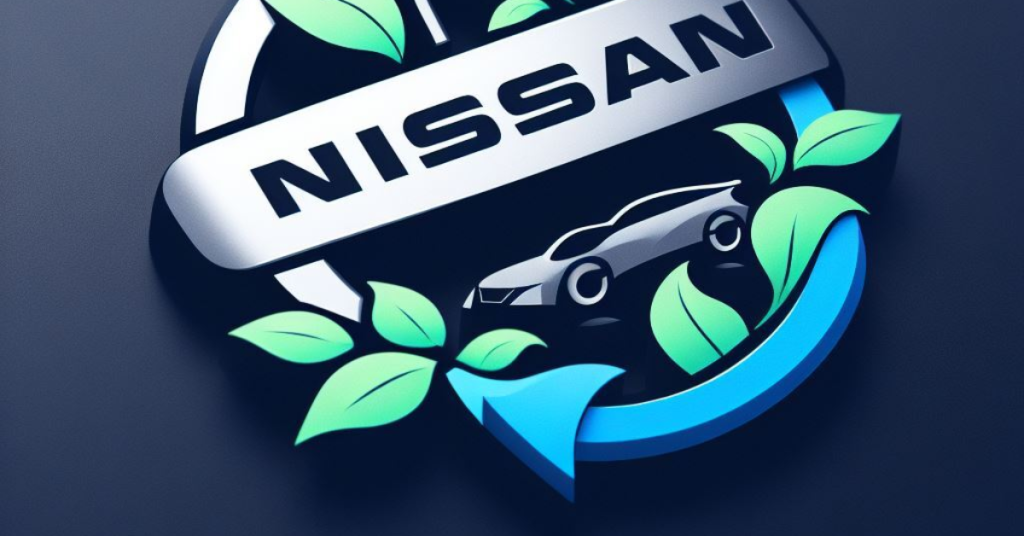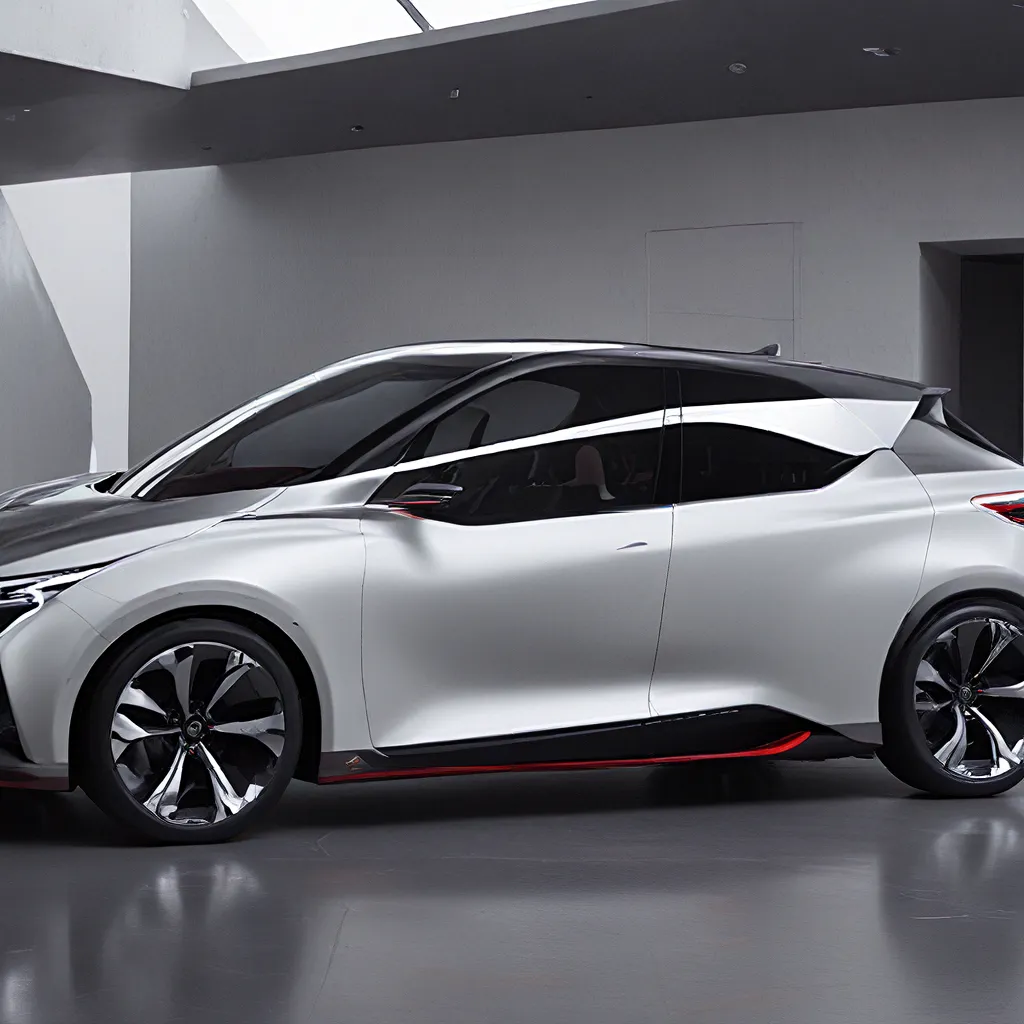
Ah, the automotive industry – a realm where cutting-edge technology meets the rubber that meets the road. And let me tell you, my friends, Nissan is taking this intersection to a whole new level with their latest innovation: additive manufacturing, or as us industry insiders like to call it, 3D printing on steroids.
Embracing the Future of Manufacturing
Picture this: you’re standing on the factory floor, surrounded by the rhythmic hum of machinery and the scent of freshly forged metal. But wait, what’s that? Instead of the usual assembly line, you see a fleet of 3D printers whirring away, churning out intricate automotive parts with a precision that would make even the steadiest-handed craftsman green with envy.
Welcome to the world of Nissan’s Intelligent Factory Initiative, where the future of manufacturing has arrived, and it’s not messing around. As Hideyuki Sakamoto, Nissan’s executive vice president for manufacturing and supply chain management, puts it, “The automotive industry is in a period of great change, and solving the global challenge of climate change is urgent. We see this as an opportunity to build the strength of monozukuri manufacturing, a part of our DNA, to develop and apply innovative technologies to overcome the challenges we face.”
Mastering the Art of Monozukuri
Now, you might be wondering, “What the heck is monozukuri?” Well, my friends, it’s a Japanese term that embodies the art of manufacturing, the deep-rooted craftsmanship that has been the backbone of the Japanese industrial revolution. And Nissan is taking this concept to the next level by integrating it with the cutting-edge world of additive manufacturing.
Imagine a production line where robots have inherited the skills of Nissan’s legendary takumi (master technicians), blending the best of human expertise with the precision and efficiency of advanced machinery. It’s a harmonious dance of man and machine, where every component is crafted with the utmost care and attention to detail.
But Nissan’s ambitions don’t stop there. They’ve also set their sights on creating an improved work environment where a diverse range of people can thrive, all while accelerating their efforts to achieve a decarbonized society. Talk about a win-win-win situation!
Revolutionizing the Production Process
So, how exactly is Nissan using additive manufacturing to transform their production process? Well, buckle up, because this is where things get really exciting.
Imagine a world where you can produce custom-tailored automotive parts on demand, without the need for vast inventories or long lead times. That’s the power of additive manufacturing, and Nissan is harnessing it to the fullest.
As we’ve learned from the experts, on-demand manufacturing not only offers mass customization capabilities but also reduces waste and environmental impact. By producing parts precisely when and where they’re needed, Nissan is minimizing the carbon footprint of their operations while delivering unparalleled flexibility and responsiveness to customer demands.
But the benefits of additive manufacturing don’t stop there. It also has the potential to slash lead times and inventory costs, empowering Nissan to adapt more quickly to changing market conditions and customer preferences. Imagine never having to worry about a part being out of stock or a long wait for a specialized component. With additive manufacturing, Nissan is rewriting the rules of automotive production.
Embracing Sustainability and Innovation
Of course, Nissan’s commitment to additive manufacturing is just one piece of their broader sustainability strategy. As they’ve outlined in their roadmap to achieve carbon neutrality by 2050, the company is dedicated to transforming their entire production ecosystem, from plant equipment electrification to the adoption of renewable energy sources.
But Nissan isn’t just resting on their laurels. They’re constantly pushing the boundaries of what’s possible, tapping into the innovative spirit that has defined the brand for decades. Just like Toyota’s legendary Toyota Production System (TPS), Nissan is committed to the relentless pursuit of kaizen – the art of continuous improvement. They’re not just revolutionizing their manufacturing processes; they’re reinventing the very concept of automotive production.
The Future is Now
So, what does the future hold for Nissan’s additive manufacturing revolution? Well, my friends, the sky’s the limit. As they roll out their Intelligent Factory Initiative across their global network of production facilities, we’re likely to see even more mind-bending innovations that push the boundaries of what’s possible in the automotive world.
Imagine a future where you can customize your dream car, down to the tiniest detail, and have it delivered to your doorstep in record time. Or picture a world where the environmental impact of automotive manufacturing is practically negligible, thanks to the magic of additive technology. These aren’t just pipe dreams; they’re the reality that Nissan is working tirelessly to bring to life.
And let’s not forget the human element. By creating an environment where a diverse range of people can thrive, Nissan is not only building a more inclusive and equitable future but also tapping into the collective genius of their workforce. After all, as Toyota has proven with their TPS philosophy, it’s the human ingenuity and dedication that truly drive innovation forward.
So, my friends, the next time you step into a Nissan showroom, take a moment to appreciate the magic happening behind the scenes. Because in the world of automotive manufacturing, Nissan is leading the charge, rewriting the rules and paving the way for a future that’s more sustainable, more responsive, and more exciting than ever before. Welcome to the revolution.






